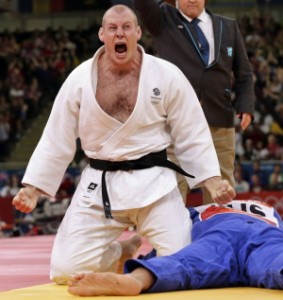
Courtesy of StockVault
The moment of victory is a part of our inherent need for dominance.
Humintell’s director, Dr. David Matsumoto, was interviewed by National Geographic for their weekend radio show about athletes and their expression of winning in competitive sports.
“Chest thumping and celebrating over the conquered rival has become so ubiquitous in sports that psychologist and judo coach, David Matsumoto began to wonder about the roots of these types of behaviors. He’s now a Professor of Psychology at San Francisco State University and now has found that this impulse to display dominance is common among all humans, even blind athletes who have never witnessed the phenomenon visually.“
Dr. Matsumoto goes on to note that the value of the victory just achieved also plays an important role in the outward display of emotion.
To find out more about the universal triumph display, listen to National Geographic Weekend’s podcast below.
Click here to view the embedded video.

 In recent years there has been much talk about the stance a winner takes after a competition. Originally labeled as pride, this “victory” stance has been studied by many researchers. With the winter Olympics just around the corner it is prudent to note new research findings for the triumphant body language of the victor’s stance.
In recent years there has been much talk about the stance a winner takes after a competition. Originally labeled as pride, this “victory” stance has been studied by many researchers. With the winter Olympics just around the corner it is prudent to note new research findings for the triumphant body language of the victor’s stance.